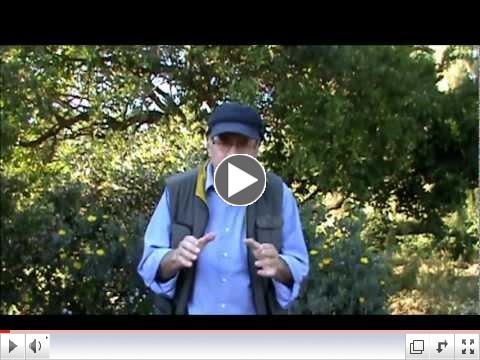|
|
|
Weekly Bible Study Review
|
|

Missed an Issue? No problem. View our Archives.
|
Class Schedule
Go to www.theocentrix.org click on the "Events" tab
for maps and more information.
|

Cafe Class
Culture Cafe
1359 N Altadena Drive
Pasadena CA 91107
Tuesdays 11:00 am
|

Read-to-Believe Class
Lake Avenue Church
Hutchins Hall Room 402
309 N Lake Avenue
Pasadena CA 91101
Thursdays 7:00 pm
|
|
.
Romans Challenge
Albert Baroody invites you
to read the book of Romans in two translations with three other people
in four weeks.

|

Arbo Class
LA County Arboretum
301 N Baldwin Ave
Arcadia CA 91007
Saturday 12:00 noon
Once per month
July 14, 2012 August 11, 2012 September 8, 2012 October 6, 2012 November 3, 2012 December 8, 2012 |
|
|
 Greetings! Greetings!
This newsletter is sent to people who attend one of Sandy's weekly Bible studies. The left column has the current class schedule. Be sure to watch for the links in each article. Clicking on them will lead you to charts, diagrams and additional articles related to your class.
Anyone can subscribe to this free newsletter by using the link in the upper left corner. If you would like to forward this issue to a friend all you have to do is click on the link below.
|
| |
 Tuesday Cafe Class Tuesday Cafe Class
Ephesians | |
Ephesians 4:1-24
4:1-6 Paul describes himself as "a prisoner for the Lord." He was in prison at the time he wrote this letter to the believers in Ephesus. He wants his readers to live up to their calling as Christians. That means being humble, gentle and patient. Keep in mind that in the first century any man who demonstrated these traits would probably be seen as weak. They must bear with one another, which could mean putting up with each other or bearing each other's burdens. They must "make every effort to keep the unity of the Spirit." This unity already exists and it is the believers' job to "keep" or maintain their unity. What is this unity?
- one body
- one Spirit
- one hope
- one Lord
- one faith
- one baptism
- one God
- one Father of all--the Father is over all, through all, and in all.
v. 7-13 After emphasizing their unity, now Paul explains their diversity. Grace has been given to each believer "as Christ apportioned it." Some are given grace to be apostles, prophets, evangelists, pastors and teachers. Paul quotes Psalm 68, "When he ascended on high, he led captives in his train and gave gifts to men." The readers would have known that when a victorious king returns home from the battlefield there is a procession in which the plunder and the captives are paraded along. Then the victorious king gives gifts to his loyal supporters and friends. Paul explains that Christ is the victorious king who "ascended" on high and gave gifts to the believers (apostles, prophets, etc.). Christ is the one who first "descended" from heaven to earth and then "ascended" higher than the heavens. He fills the whole universe. He is the one who "gave some to be apostles, some to be prophets," etc.
The purpose of these gifts is to prepare the church for works of service. Why service? So the church may be built up. For how long?
- until we all reach unity in the faith
- and we all reach unity in the knowledge of the Son of God
- and we all reach maturity
- and we all attain the whole measure of the fullness of Christ
|
| |
 Thursday Read-to-Believe Class Thursday Read-to-Believe Class
Exodus
| |
Exodus 34:1-36:7
34:1-7 Moses chiseled out two more stone tablets to replace the ones he smashed after the people sinned. The next morning Moses went up the mountain alone and the Lord came down in a cloud proclaiming His name, the Lord. He passed in front of Moses and announced Himself by stating His attributes: the Lord, compassionate, gracious God, slow to anger, abounding in love and faithfulness, maintaining that love to thousands, forgiving wickedness, rebellion, and sin. "Yet He does not leave the guilty unpunished." Their punishment continues down to the third and fourth generation. All the Lord said about Himself here is sort of a preamble to the agreement they're about to make. He's identifying who He is.
v. 8-14 Moses bowed to the ground and worshiped Him. Again he asked the Lord to forgive them and go with them on their journey. Then he says something unexpected-- "and take us as your inheritance." Notice Moses does not ask the Lord to give them blessings or provisions but rather asks Him to take them as His own. The Lord responded by saying He would make a covenant with them. He would do wonders that had never been done before. All the other nations will see His awesome work. If the Israelites obey what He commands then He will drive out the Canaanite nations before them so they can move into the Promised Land. But they must be careful not to make any treaties with those nations. They must break down the pagan altars, sacred stones and Asherah poles, and not worship any other nation's gods. The Lord's name is "Jealous" and He is a jealous God.
Click to read more... |
|
Since ancient times the Bible has been read aloud to groups of people who were eager to hear the words of Life. We're really no different today. Believers still look to the Bible for wisdom and instruction. We belong in the Word together. Thank you for your participation in these classes. I hope you will pass this email on to others and invite them to attend a Bible study.
Grace and peace, Sandy Blank
|
|
|
|
|
 |  Tuesday Cafe Class (continued) Tuesday Cafe Class (continued) | |
Ephesians 4:1-24
4:14-16 When the believers become mature they will no longer be "infants." No longer be helplessly confused and deceived by false teaching and "the cunning and craftiness of men in their deceitful scheming." Paul says, "no longer" will they be infants. This implies that many of them are probably spiritual infants at the time he's writing this. They must learn to speak the truth in love and grow up into Christ who is the Head of the church. The body of Christ (the church) grows and builds itself up in love as each person uses their gifts for the benefit of all. Notice that the believers participate in this growth and each one is expected to do his or her part.
v. 17-19 Paul insists that they must no longer live like the Gentiles. He knows many of his readers used to be pagan Gentiles before they had faith in Christ but he wants them to leave that old life behind. He says the Gentiles' thinking is "futile," or useless and meaningless. The unbelieving Gentiles are "darkened in their understanding." They are "separated from the life of God." Why? "Because of the ignorance" (lack of knowledge) that is in them." Their ignorance is "due to the hardening of their hearts." Notice that their lack of knowledge (ignorance) is due to the hardness of their hearts. Paul talks about this in Romans 1 when he describes how Gentiles knew something of God through what they could see in creation. But because they rejected that knowledge of God then God gave them over to a hardened heart. Here in Ephesians Paul says these unbelieving Gentiles "have given themselves over to sensuality." They indulge in all kinds of impurity and lust after even more.
v. 20-24 But the believers did not come to know Christ this way. They heard of Him and were taught by others about Him. They did not harden their hearts against Him. Their leaders taught them "in accordance with the truth." These new believers in Ephesus were taught to put off their old way of life, their old self, and "to be made new in the attitude" of their minds. To "put on the new self, created to be like God in true righteousness and holiness." Notice Paul's emphasis on their minds and not just their actions. He talks about knowledge and attitudes. What they know will drive what they ultimately do. There is a clear difference between who they are and who they used to be. Next time we will read a more specific account of what is expected of them.
--Sandy Blank
Back... |
|  Thursday Read-to-Believe Class (continued) Thursday Read-to-Believe Class (continued) | |
Exodus 34:1-36:7
34:15-17 It was common for nations to make treaties with each other, so what the Lord was commanding was quite unusual and would not help their relations with their neighbors. But the underlying reason for the command was to prevent the Israelites from sharing in the sin of those nations. "For when they prostitute themselves" (sell themselves) and have their festivals they will invite the Israelites to come eat with them. Eventually they would intermarry with these nations and follow them into idolatry. The Lord commands them not to make cast idols like they did with the golden calf.
v. 18-26 Three times a year the Israelites will have festivals of their own in which all the men must appear before the Lord to give offerings. This is in addition to the weekly Sabbath which they are to keep even when they are busy with planting or harvesting their crops. No one is to appear before Him empty-handed. They must offer the best of their produce to the Lord and He will make sure that no one invades their land while they travel to these annual festivals.
1. Feast of Unleavened Bread: celebrated in the spring along with Passover, commemorating their exodus from Egypt. They must eat unleavened bread for seven days and burn the leftovers of the Passover meal before morning.
2. Feast of Weeks: celebrated with the early wheat harvest. They must bring the firstfruits of the wheat harvest to the Lord.
3. Feast of Ingathering: celebrated at "the turn of the year" when the fall harvest is gathered.
Also, they must offer the firstborn males of all their livestock. They may substitute a lamb for a firstborn donkey. Their firstborn sons are also redeemed by offering an animal sacrifice in his place. We see a strong theme of the sacrifice of the firstborn male; no doubt a shadow of God's willingness to sacrifice His own firstborn Son. Again the Lord repeats the command, "do not cook a young goat in its mother's milk." (I don't know why that command is given.)
v. 27-35 Moses was on the mountain 40 days and 40 nights without eating and drinking while the Lord gave him the terms of this covenant. When Moses went back down to the camp his face was radiant because He had spoken with the Lord. It was so radiant that Aaron and the people were afraid of him. But Moses called them and he spoke first with the elders and then with all the people, giving them the commands of the Lord. Then he put a veil over his face. But whenever he spoke to the Lord in the tent of meeting he unveiled his face. Whenever he gave the Lord's commands to the Israelites he unveiled his face and they could see the radiance. But then he would again cover his face until he went to speak to the Lord the next time.
What does this mean? Paul explains it in 2 Corinthians 3:7-18.
|
Both the Old and New Covenants came with glory but the New Covenant has greater glory.
Christians are not like Moses, veiling his face because the glory is fading.
Those who reject Christ and rely on the Old Covenant to save them have hearts that are veiled.
But when anyone turns to the Lord the veil is taken away.
The believers have "unveiled" faces that reflect the Lord's glory.
This glory is not fading but is "ever increasing."
|
(NIV) 2 Cor. 3:7 Now if the ministry that brought death, which was engraved in letters on stone, (the Old Covenant) came with glory, so that the Israelites could not look steadily at the face of Moses because of its glory, fading though it was, 8 will not the ministry of the Spirit (the New Covenant) be even more glorious?
9 If the ministry that condemns men is glorious (Old Cov.), how much more glorious is the ministry that brings righteousness! (New Cov.)
10 For what was glorious (Old Cov.) has no glory now in comparison with the surpassing glory (of the New Cov.).
11 And if what was fading away (Old Cov.) came with glory, how much greater is the glory of that (New Cov.) which lasts!
12 Therefore, since we have such a hope, we (the Christians) are very bold. 13 We (the Christians) are not like Moses, who would put a veil over his face to keep the Israelites from gazing at it while the radiance was fading away (glory of the Old Cov. was not going to last).
14 But their (the Israelites') minds were made dull, for to this day
(when Paul wrote his letter) the same (symbolic) veil remains when the old covenant is read. It has not been removed, because only in Christ is it taken away.
15 Even to this day when Moses is read, a veil covers their hearts.
16 But whenever anyone turns to the Lord, the veil is taken away.
17 Now the Lord is the Spirit, and where the Spirit of the Lord is, there is freedom. 18 And we (the Christians), who with unveiled faces all reflect the Lord's glory, are being transformed into his likeness with ever-increasing glory, which comes from the Lord, who is the Spirit. |

35:1-3 Next Moses brought all the Israelites together and told them what the Lord commanded regarding the Sabbath and the construction of the Tabernacle. They must work six days and rest on the seventh. Anyone who works on the Sabbath must be put to death. No one was to light a fire in their dwelling on the Sabbath.
v. 4-29 Then Moses told them he was going to collect an offering for the Lord. Those who were willing were to bring all the materials needed for the building of the Tabernacle. Those people who were skilled in crafts like weaving, metalwork, carpentry etc. were to make everything that was needed for the Tabernacle. The whole community "withdrew from Moses' presence" and whoever was willing, men and women, brought an offering to the Lord. They brought everything that was needed (click to see handout).
v. 30-36:7 Moses explained that the Lord had chosen Bezalel of the tribe of Judah to lead the project and filled him with the Holy Spirit, as well as the skill and knowledge to do this work. The Lord chose Oholiab of the tribe of Dan to assist him. These highly skilled craftsmen were also given the ability to teach others. Moses gave the offerings to these men and the people continued to bring more every morning. The craftsmen soon realized that they had more than they needed to complete the work so Moses commanded the people not to bring any more. This work of constructing the Tabernacle was a unifying experience for the Israelites. It helped them see themselves as the people of the Lord and gave them something tangible that was an important part of their national identity.
Much more next time.
-- Sandy Blank
Back...
|
|
|
| This newsletter is maintained by Sandy Blank (Ph.D. Educational Studies, Biola; MA Biblical Studies, Grace University). If you would like further information about any of her classes or would like to know how to start a Bible study in your area please contact her at sandyblank@theocentrix.org. This newsletter is sponsored by Theocentrix, Inc., a 501(c)(3) nonprofit organization dedicated to promoting God-centered Bible literacy. Visit www.theocentrix.org for more information. |
|
|